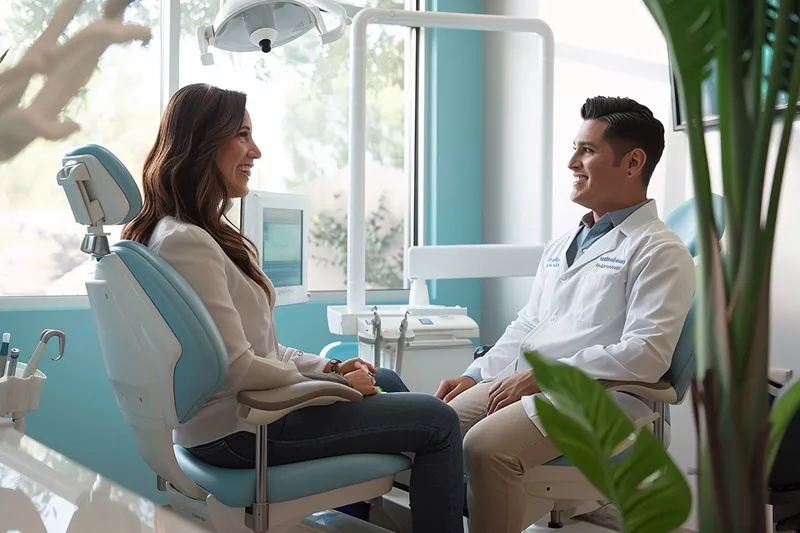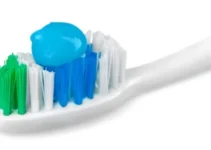Many people experience anxiety when it comes to dental visits, which can often hinder their pursuit of a healthy mouth. Overcoming fear of the dentist involves understanding the root causes of dental anxiety and exploring various coping strategies. These can include mindfulness techniques, clear communications with your dental care provider, and gradual exposure to dental procedures. Regular visits are crucial for maintaining oral health, so finding effective ways to manage this fear is essential for your overall wellbeing.
Understanding the Fear of the Dentist
Dental fear, also known as dental anxiety or dental phobia, is a significant issue that affects many individuals worldwide. It’s a condition that can result in the avoidance of dental care, leading to deteriorating oral health. Understanding the root causes and the far-reaching impacts of dental fear is essential for both patients and dental professionals.
The anxiety associated with dental visits can range from mild uneasiness to severe phobia, preventing individuals from seeking necessary dental treatments. This article delves into the common reasons for dental anxiety, its impact on oral health, and the symptoms of dental phobia.

Common Reasons for Dental Anxiety
Several factors contribute to dental anxiety, and understanding these can help in addressing and alleviating the fear. One of the most common reasons is a previous traumatic experience. Patients who have had painful procedures or negative interactions with dental professionals may develop a lasting fear of the dentist. Another significant factor is the fear of pain. Many individuals associate dental visits with pain, stemming from procedures like tooth extractions or root canals. Additionally, the sight and sound of dental instruments can trigger anxiety, as can the thought of needles used for anesthesia.
Lastly, a sense of loss of control during dental procedures can exacerbate anxiety. Sitting in a dental chair with one’s mouth open for an extended period can make some patients feel vulnerable and helpless, further intensifying their fear.
The Impact of Dental Fear on Oral Health
Avoiding dental visits due to fear can have serious repercussions on one’s oral health. Regular dental check-ups are crucial for the early detection and treatment of dental issues such as cavities, gum disease, and oral cancers. Skipping these appointments can lead to the progression of these conditions, making them more complex and costly to treat in the future.
Moreover, individuals with dental anxiety are more likely to neglect their oral hygiene routines. Fearful patients might avoid brushing and flossing regularly, which can lead to an increase in plaque buildup and tooth decay. This neglect can exacerbate dental problems, creating a vicious cycle of dental fear and worsening oral health.
Research has shown that poor oral health is linked to various systemic health issues, including cardiovascular disease and diabetes. Therefore, the implications of dental fear extend beyond the mouth, affecting the overall health and well-being of individuals.
Recognizing Symptoms of Dental Phobia
Dental phobia is more severe than regular dental anxiety and can manifest in various physical and psychological symptoms. Recognizing these symptoms is the first step in seeking help and addressing the fear effectively. Common symptoms include intense nervousness at the thought of visiting the dentist, trouble sleeping the night before an appointment, and feelings of panic or unease while in the dental office.
Physical symptoms might include sweating, a racing heart, or even gastrointestinal distress. Some individuals might experience outright panic attacks, characterized by shortness of breath, dizziness, and a feeling of impending doom. These reactions can make it incredibly difficult for patients to go through with their dental visits. In severe cases, dental phobia can lead to a complete avoidance of dental care, regardless of the presence of pain or dental issues. Patients may endure significant discomfort and risk severe oral health problems rather than face their fears. Recognizing these symptoms early on can help in seeking appropriate psychological or behavioral interventions to manage the phobia effectively.
Understanding and addressing dental fear is crucial for maintaining good oral and overall health. If you or someone you know is struggling with dental anxiety, consider exploring other articles on our website that offer tips and strategies for managing this common issue.
Effective Strategies for Overcoming Dental Anxiety
Dental anxiety is a common concern that can prevent individuals from seeking necessary dental care. It is essential to address this fear to maintain good oral health and overall well-being. Understanding and implementing effective strategies can significantly reduce anxiety and make dental visits more manageable.
Many people experience heightened stress and fear when faced with dental procedures. This anxiety can stem from a variety of sources, including past negative experiences, fear of pain, or even the sounds and smells associated with a dental office. Identifying the root cause of your anxiety can be the first step towards managing it effectively.
There are several strategies that patients can use to overcome dental anxiety. These include communicating effectively with your dentist, employing relaxation techniques, and gradually exposing yourself to the dental environment. Each of these strategies can help you build confidence and reduce fear over time.
Communicating with Your Dentist
One of the most effective ways to manage dental anxiety is through open and honest communication with your dentist. Sharing your fears and concerns with your dentist allows them to tailor their approach to better suit your needs. Dentists are trained to handle anxious patients and can provide various options to make your experience more comfortable.
Discussing your anxiety with your dentist can lead to the development of a personalized treatment plan. This plan can include scheduling longer appointments to give you more time to feel at ease, offering sedation options, or providing detailed explanations of each step of the procedure to alleviate fear of the unknown.
Using a pre-arranged signal to communicate discomfort or the need for a break during a procedure can also be beneficial. This empowers you to take control of the situation and manage your anxiety more effectively.
Techniques for Relaxation
Relaxation techniques can be highly effective for reducing dental anxiety. Methods such as deep breathing exercises, progressive muscle relaxation, and visualization can help calm your mind and body before and during dental visits.
Deep breathing involves inhaling slowly and deeply through the nose, holding the breath for a few seconds, and then exhaling slowly through the mouth. This simple technique can reduce tension and promote a sense of calm.
Progressive muscle relaxation involves tensing and then slowly releasing each muscle group in your body. Starting from your toes and working your way up to your head, this technique can help release physical tension and reduce overall anxiety.
Visualization, or guided imagery, involves imagining a peaceful and relaxing scene in your mind. This could be a beach, a forest, or any place that makes you feel calm and safe. Focusing on this mental image can distract you from anxious thoughts and reduce stress.
Gradual Exposure Therapy
Gradual exposure therapy is a technique used to desensitize patients to their fears by exposing them to the dental environment in a controlled and incremental manner. This process helps patients build tolerance and reduce anxiety over time.
The therapy typically involves a series of small, manageable steps. For instance, you might start by simply visiting the dental office to become familiar with the surroundings without undergoing any procedures. The next visit could involve sitting in the dental chair without any treatment, followed by more progressive steps like a cleaning or minor procedure.
By gradually facing your fears in a controlled and supportive environment, you can build confidence and reduce the intensity of your anxiety. It’s important to move at your own pace and not rush through the steps.
Combining gradual exposure with other anxiety-reducing techniques, such as deep breathing or visualization, can further enhance its effectiveness. Working closely with a supportive dentist who understands your fears is crucial for the success of this approach.
Preparing for Your Dental Visit
Visiting the dentist can be an anxiety-inducing experience for many, but being well-prepared can make the process smoother and less intimidating. Proper preparation helps you understand what to expect and ensures that both you and your dentist can focus on creating the best treatment plan. Here are some essential steps and tips to prepare for your dental visit.
By taking these preparatory steps, you can alleviate some of the stress and ensure a more productive dental consultation. Advanced planning will help you have all your questions answered and concerns addressed, leading to a more comfortable and informed experience.
Scheduling a Consultation First
One of the most critical steps in preparing for your dental visit is to schedule a consultation first. A preliminary consultation allows you to discuss your dental history, current concerns, and expectations with your dentist. By doing so, both you and your dentist can develop a tailored treatment plan that best meets your needs.
During this initial consultation, be sure to provide your dentist with a complete medical history, including any medications you are currently taking. This information is crucial for understanding any potential risks or complications during treatment. Additionally, ask about any pre-visit instructions, such as dietary restrictions or medication adjustments, to ensure you are fully prepared.
Remember, scheduling a consultation first is an opportunity to establish a rapport with your dentist and to create a foundation of trust and open communication. This step is particularly important if you are considering more complex procedures like implantology or bone regeneration.
Bringing a Friend or Family Member
Another effective way to ease the stress of a dental visit is to bring a friend or family member with you. Having a trusted companion by your side can provide emotional support and help alleviate any anxiety you may have about the visit.
Your companion can also assist in remembering important information or instructions provided by the dentist. Sometimes, anxiety can make it challenging to retain all the details discussed during the appointment. Having someone else there to take notes or ask questions can be incredibly beneficial.
Bringing a friend or family member is particularly helpful for patients who undergo sedation or are preparing for more intensive treatments. Post-procedure, you may require someone to drive you home or help you with after-care instructions, making their presence invaluable.
Knowing What to Expect
Being informed about what to expect during your dental visit can significantly reduce anxiety. Familiarize yourself with the typical procedures and stages involved in your specific treatment. Understanding the process can demystify the experience and make it less daunting.
Before your appointment, consult reliable sources about the procedure you’re undergoing. Whether it’s a regular cleaning, a dental implant, or bone regeneration, knowing the steps involved can make you feel more in control. You can even write down a list of questions or concerns to discuss with your dentist.
Some common aspects you might want to inquire about include:
- The duration of the procedure
- Any necessary preparations
- Potential risks and side effects
- Post-procedure care and recovery time
Knowing these details allows you to mentally prepare and ensures there are no surprises during your visit. Being well-informed empowers you to take an active role in your dental health.
By following these steps, you can make your dental visit a more comfortable and less stressful experience. For more in-depth insights on related topics, check out our other articles on advanced dental procedures and care tips.
Long-Term Solutions for an Anxiety-Free Dental Experience
Dental anxiety is a common issue faced by many individuals, but with the right strategies, it can be effectively managed. By adopting a combination of regular dental visits, maintaining good oral hygiene, and seeking professional help for severe anxiety, patients can achieve a comfortable and stress-free dental experience. This section will delve into these strategies in detail, providing insight into how they can contribute to long-term dental health and reduced anxiety.
Regular Dental Visits
One of the most effective ways to combat dental anxiety is through regular dental visits. Establishing a routine with your dentist not only helps in maintaining optimal oral health but also reduces the fear associated with dental procedures. Familiarity with the dental environment and the professionals can significantly alleviate anxiety over time.
Regular check-ups allow for the early detection of potential dental issues, which can prevent the need for more invasive and anxiety-inducing treatments. Additionally, these visits provide an opportunity to discuss any concerns with your dentist, who can offer reassurance and tailored advice to help manage your anxiety.
According to studies, patients who have consistent dental appointments tend to experience less dental anxiety. The predictability and frequency of visits create a sense of control and reduce the unknown factors that often contribute to fear. Establishing a good rapport with your dentist can make a significant difference in easing dental-related stress.
Maintaining Good Oral Hygiene
Maintaining good oral hygiene is another crucial aspect of minimizing dental anxiety. By practicing effective oral hygiene at home, you can reduce the likelihood of developing dental issues that require extensive treatment. Regular brushing, flossing, and using mouthwash can help keep your teeth and gums healthy, reducing the need for complex procedures.
A few key practices include:
- Brushing your teeth twice a day with fluoride toothpaste
- Flossing daily to remove plaque and food particles between teeth
- Using an antiseptic mouthwash to kill bacteria and freshen breath
Individuals who maintain good oral hygiene habits typically experience fewer dental problems and, consequently, less anxiety when visiting the dentist. Educating yourself about proper oral care and adhering to these habits can lead to more positive dental experiences and better overall oral health.
Seeking Professional Help for Severe Anxiety
For some patients, dental anxiety may be severe and require professional intervention. Psychological therapies, such as cognitive-behavioral therapy (CBT), have been proven effective in reducing dental anxiety by addressing the underlying fears and thought patterns associated with it. A trained therapist can work with you to develop coping mechanisms and relaxation techniques tailored to your specific needs.
In addition to therapy, certain medications can also help manage severe anxiety. Sedation dentistry options, such as nitrous oxide (laughing gas), oral sedatives, or intravenous (IV) sedation, can be explored with your dentist. These methods can help you remain calm and relaxed during dental procedures, ensuring a more comfortable experience.
If your anxiety is particularly intense, your dentist can refer you to a specialist, such as a dental anesthesiologist, who is trained to handle complex cases of dental fear and anxiety. By seeking professional help, you can take proactive steps to manage your anxiety and improve your dental health.
Understanding these long-term solutions can empower you to take control of your dental health and reduce the anxiety associated with dental visits. For more detailed insights and tips, be sure to explore our other articles on dental health and anxiety management.
How to Overcome Fear of the Dentist: Effective Strategies for a Healthy Mouth
Many people experience anxiety when it comes to visiting the dentist, but there are effective ways to manage this fear and ensure a healthy mouth.
What are some techniques to reduce dental anxiety before a visit?
Preparing psychologically can greatly reduce dental anxiety. Techniques include practicing deep breathing exercises, listening to calming music, and using visualization strategies to imagine a positive experience. Additionally, scheduling a visit during a less hectic time of day and discussing fears openly with your dentist can help create a more comfortable atmosphere.

My name is Salman Kapa, a 73-year-old expert in bone regeneration and dental implantology. With decades of experience in the field, I am dedicated to advancing our understanding of oral health and hygiene. Through my research and writing, I aim to contribute to the development of innovative solutions in dental care.




